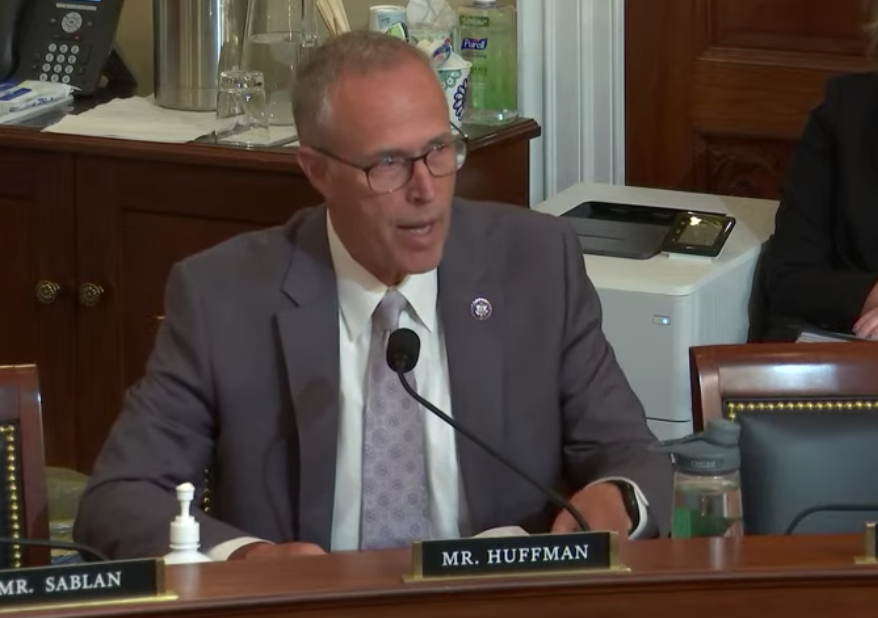The House Natural Resources Committee voted Thursday to report out the Sustaining America’s Fisheries for the Future Act, setting a course for Congressional action on the first major overhaul of federal fisheries law in 16 years.
Known as H.R. 4690, the measure would amend the Magnuson-Stevens Fishery Conservation and Management after a three-year effort headed by lead sponsor Rep. Jared Huffman, D-Calif. Huffman and supporters say the measure is needed to update the law, especially in recognition of long-term climate change effects on fisheries.
H.R. 4690 “addresses for the first time the impacts of a changing climate on U.S. fisheries and incorporates the growing reality of climate change into proactive fisheries management planning, including preparing for a geographic shift in fish stocks due to warming waters,” said Robert C. Vandermark, executive director of the Marine Fish Conservation Network, in a statement after the committee vote.
“All of these fisheries management improvements will help us meet the current and future challenges facing our oceans and fisheries and will benefit the communities and people who depend on them,” said Vandermark.
Republican members of the committee tried unsuccessfully to push for changes, including objections raised by fishing industry groups, retailers and food service businesses.
“American consumers will see seafood prices spike at their local restaurants and grocery stores, and they will turn to less nutritious food options and proteins with far higher carbon footprints than wild seafood,” almost 40 fishing advocacy groups said in an open letter to the committee last week.
Provisions that would tighten restrictions on bycatch in U.S. fisheries will make it much more difficult for the eight U.S. regional fishery management councils, the groups said.
“A mandate to absolutely minimize bycatch in all circumstances, however, as your legislation requires, could very well lead to managers or the courts shutting down fisheries where bycatch cannot be eliminated,” the letter stated.
Several Alaska fishing groups applauded the committee's action and cited Rep. Mary Peltola, D-Alaska, recently elected to fill the remaining term of the late Rep. Don Young, R-Alaska, who died in March 2022 at age 88.
The Magnuson-Stevens Act is one of our nation’s most important tools for ensuring Alaska’s wild salmon runs and salmon-based lifestyles continue to thrive. As some of Alaska's most important salmon runs collapse and as fisheries across the state suffer declines and closures, these critical updates to the MSA are more urgent than ever,” said Tim Bristol, executive director of SalmonState. “We’re thrilled that Representatives Jared Huffman and Mary Peltola are already working together to prioritize The Sustaining America’s Fisheries for the Future Act, and we fully support and encourage the passage of this vital law."
"This bill highlights the importance of incorporating climate change into fisheries management and protecting fisheries habitat to ensure our fisheries remain productive and sustainable," said Linda Behnken, executive director of the Alaska Longline Fishermen's Association. "The bill also sends a clear message that current bycatch management is not meeting conservation and management goals.”
Don Young shepherded the 2006 reauthorization of Magnuson-Stevens through Congress with bipartisan support. In the committee’s Sept. 21 meeting Democratic and Republican members rued the loss of that cooperation 16 years ago.
In a statement after the committee vote, Huffman pushed back against critics who said there had not been enough cooperative outreach, saying he set out listening to all stakeholders because “conversations around Magnuson reauthorization, like so many things in this place, had [been] bogged down in toxic, partisan posturing.”
“MSA had become just another proxy for all of these partisan fights that some people believe we have to always have around here. I wanted to reset the tone, and I wanted to refocus this important conversation on policy and science,” said Huffman.
“We got extensive, written feedback from all over the country. Writing and editing this bill, in fact, has been so transparent and stakeholder-driven, that I can’t think of another bill that has had such a robust and transparent and inclusive process.”







